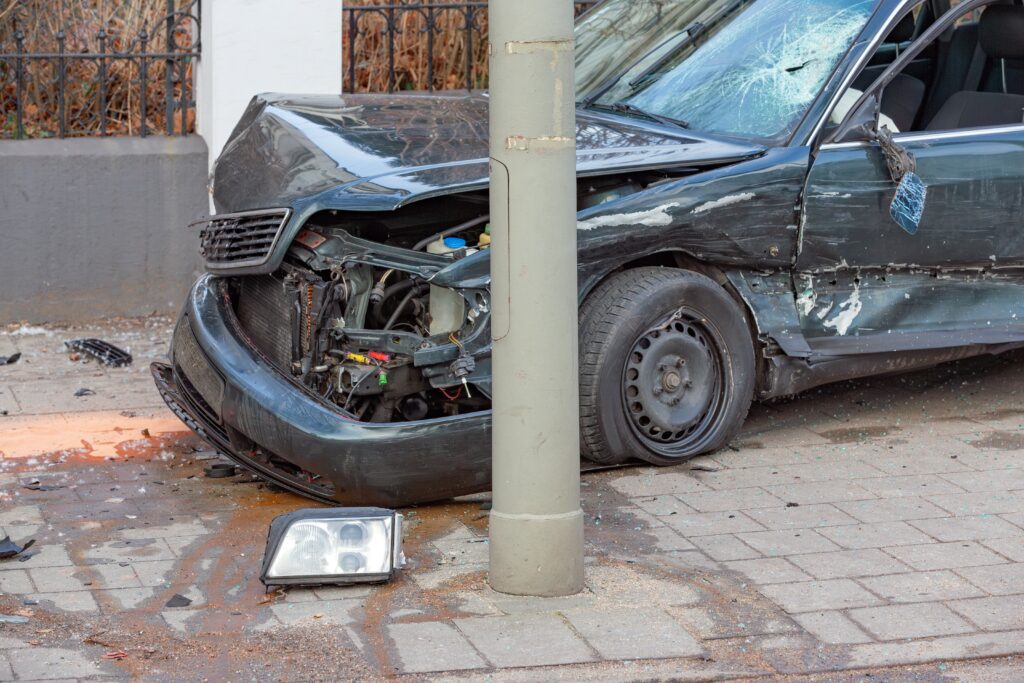
Understanding GEICO Total Loss – A Comprehensive Guide
When you find yourself in the unfortunate situation of having your vehicle declared a total loss, understanding the process and knowing your options is crucial. GEICO, one of the largest auto insurance providers in the United States, has specific policies and procedures for handling total loss claims. In this comprehensive guide, we will explore GEICO’s total loss policies, what they mean for you and your vehicle, and how to navigate the process effectively. For any inquiries or to start a total loss claim, you can contact the GEICO total loss claims department at (800) 841-3000.
Want to Maximize Your Total Loss Claim Amount?
What is a Total Loss?
A vehicle is considered a total loss when the cost of repairs exceeds the actual cash value (ACV) of the vehicle. In simple terms, if it costs more to fix your car than what it is worth, the insurance company will declare it a total loss. This determination is made through an appraisal process where the adjuster assesses the damage and compares repair costs with the vehicle’s pre-accident market value.
GEICO Total Loss Policies
GEICO follows a standard procedure to determine whether a vehicle is a total loss. The key steps in their process include:
- Assessment of Damage: GEICO sends an adjuster to inspect the vehicle and evaluate the extent of the damage.
- Estimation of Repair Costs: The adjuster calculates the cost of repairs needed to restore the vehicle to its pre-accident condition.
- Determination of Actual Cash Value (ACV): GEICO determines the ACV of your vehicle based on factors such as age, mileage, condition, and market trends.
- Comparison and Decision: If the repair costs exceed the ACV, the vehicle is declared a total loss.
Key Considerations in a Total Loss Claim
Deductibles and Fees
When GEICO calculates your payout, they will subtract your deductible as specified in your policy. Additionally, there might be fees associated with the handling and processing of the totaled vehicle.
Impact on Your Insurance Rates
Filing a total loss claim can impact your insurance premiums. GEICO, like most insurers, may increase your rates following a claim, particularly if you were at fault for the accident.
Replacement Options
GEICO offers several options if your vehicle is deemed a total loss:
- Replacement Vehicle: You can use the settlement to purchase a new or used vehicle.
- Retaining the Salvage: If you choose to keep the totaled vehicle, GEICO will deduct the salvage value from your payout. This might be an option if you wish to repair the vehicle yourself or sell it for parts.
How GEICO Calculates Actual Cash Value
GEICO uses a combination of industry-standard valuation tools, local market research, and vehicle-specific factors to calculate the ACV. These factors include:
- Age and Mileage: Older vehicles with high mileage typically have lower ACVs.
- Condition: The pre-accident condition of the vehicle, including any previous damage or wear and tear, affects its value.
- Market Trends: Current market conditions and demand for similar vehicles in your area are considered.
- Vehicle Options and Features: Additional features, upgrades, and modifications can influence the ACV.
The Total Loss Process with GEICO
Once GEICO has determined that your vehicle is a total loss, the process generally follows these steps:
- Notification: GEICO will notify you of their decision and provide you with the ACV offer.
- Settlement Offer: You will receive a settlement offer based on the ACV minus any deductible and applicable fees.
- Title Transfer: You will need to sign over the vehicle’s title to GEICO.
- Payment: GEICO issues the settlement payment, which you can use towards purchasing a new vehicle or for other needs.
Handling Disputes and Negotiations
If you agree with GEICO’s valuation, you can accept the settlement and move forward. If you disagree, you have the option to contest the settlement. Here’s how you can do that:
- Review the Valuation: Carefully examine the valuation report provided by GEICO. Check for any inaccuracies in the vehicle’s condition, mileage, or any additional features that might affect its value.
- Gather Evidence: Collect documentation that supports a higher valuation of your vehicle. This might include receipts for recent repairs or upgrades, a professional appraisal, or comparable vehicle listings from your area.
- Submit a Rebuttal: Present your evidence to GEICO and request a reassessment of the settlement offer. Be clear and concise in your communication.
- Independent Appraisal: If GEICO still doesn’t adjust the offer to your satisfaction, you can opt for an independent appraisal to provide a neutral valuation.
The Role of Independent Auto Appraisers
At Auto Claim Consultants, we specialize in helping individuals achieve the highest payout from their diminished value and total loss claims as a GEICO total loss adjuster. Our team of experienced independent auto appraisers provides expert evaluations and negotiations to ensure you receive fair compensation. We understand the intricacies of GEICO’s total loss policies and leverage our knowledge to advocate for your best interests. By working with us, you can maximize your payout and navigate the claims process with confidence.
Contact Auto Claim Consultants for Help With GEICO Total Loss Claims
Navigating the total loss process with GEICO can be complex, but understanding their policies and knowing your rights can make a significant difference. If your vehicle has been declared a total loss, taking proactive steps to review the settlement offer and consider independent appraisals can help you achieve a fair payout.
At Auto Claim Consultants, we are dedicated to assisting you throughout this process. If you have totaled your vehicle and are looking for a GEICO total loss adjuster to help you secure the highest payout, contact us today to get started or to learn more about how we can assist you. We are here to ensure that you receive the compensation you deserve.

FAQs
What does it mean when GEICO declares my vehicle a total loss?
When GEICO declares your vehicle a total loss, it means that the cost to repair your car exceeds its actual cash value (ACV). In such cases, GEICO will offer you a settlement based on the vehicle’s pre-accident value rather than paying for the repairs.
What should I do if I disagree with GEICO’s total loss valuation?
If you disagree with GEICO’s valuation, you can dispute the offer by providing evidence of a higher value, such as recent sales of similar vehicles, repair estimates, and any relevant documentation. You may also seek an independent appraisal to support your claim.
How long does the total loss process take with GEICO?
The total loss process timeline can vary, but it typically takes a few weeks from the time GEICO declares your vehicle a total loss to the final settlement. This includes the time needed for inspection, valuation, and processing the settlement payment.
Will I still owe money on my loan if my car is totaled?
If your car is totaled and you owe more on your loan than the ACV settlement from GEICO, you will still be responsible for paying the remaining loan balance. Gap insurance can cover the difference between your loan balance and the settlement amount.
Can I keep my car if it is declared a total loss by GEICO?
In some cases, you may choose to retain your totaled vehicle. However, the settlement amount will be adjusted to account for the salvage value of the vehicle, and you will be responsible for repairs and obtaining a salvage title.
